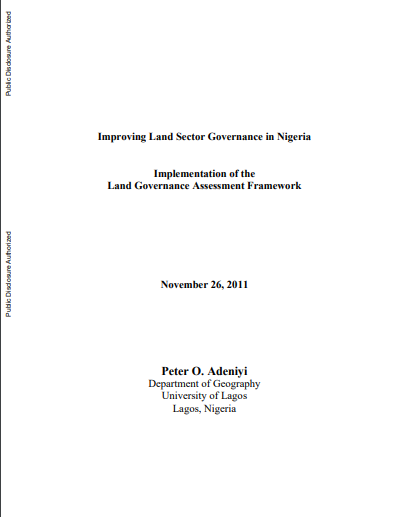Resource information
Nigeria is covered by two major types of vegetation: (i) the forest types consisting of mangrove swamp, freshwater swamp, and the tropical rainforest dominantly found in the south; and (ii) the savanna types consisting of Guinea, derived, Sudan, and Sahel savanna covering the middle belt and northern part of Nigeria. In spite of the rich endowments, Nigeria is still facing a lot of development challenges. The basic legal framework on land, the land use act (a federal enactment attached to the Constitution) has prescribed that all land in Nigeria within the territory of each state of the federation is vested in the control and management of the state governor in question. The inclusion of Nigeria as one of the six countries benefiting from the World Bank and International Food Policy Research Institute (IFPRI) and other partner organizations in this land governance assessment framework (LGAF) pilot study at this point in time is one of the best things to happen to Nigeria and especially, to the Presidential Technical Committee on Land Reforms (PTCLR). Designed as a diagnostic instrument for rapid national evaluation of various aspects of land governance, the LGAF is to be implemented by in-country experts. The LGAF study started in February 2011 in Nigeria. The Nigerian study included a complementary module on large scale land acquisition (LSLA) with 16 dimensions.


